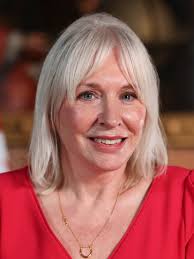Exploring the Political Landscape of Nadine Dorries

Introduction
Nadine Dorries, a prominent Conservative MP and former Culture Secretary, has been a significant figure in British politics for over a decade. Her career reflects the evolving dynamics within the UK government and public sentiment, making her one of the focal points in recent discussions surrounding political reform and representation. Understanding her journey offers insight into the current state of UK politics.
Political Career Overview
Dorries has served as the Member of Parliament for Mid Bedfordshire since 2005 and gained notoriety for her outspoken stance on various issues, from healthcare to media regulations. Appointed as Secretary of State for Digital, Culture, Media and Sport in September 2021, she played a pivotal role in shaping policies on media, broadcasting, and sports amid the ongoing challenges due to the pandemic.
Recent Developments
In recent months, Dorries has made headlines not only for her contributions to her ministerial role but also for her comments on party leadership and media appearances. In November 2022, she announced her resignation from the cabinet after the trust crisis within the Conservative Party escalated, leading to significant changes in the government. Her decision to step back from cabinet duties has sparked speculation about her future in politics and potential leadership roles within the party.
Furthermore, Dorries’ participation in reality TV shows, such as ‘I’m a Celebrity… Get Me Out of Here!’, has attracted both criticism and support, showcasing her willingness to engage with the public in unconventional ways. Critics argue that such appearances undermine the serious nature of her political responsibilities, while supporters appreciate her relatability.
Impact and Future Prospects
Nadine Dorries remains a polarising figure within politics, with her supporters and detractors vocalising their views on her approach to governance. As the UK faces ongoing challenges, including economic uncertainty and public health issues, her future prospects within the Conservative Party are under considerable scrutiny. Many observers speculate if she will take on a more prominent role following the party’s upcoming leadership elections or if her approach to engaging with the public through media will shape a new perspective on her political career.
Conclusion
As Nadine Dorries continues to navigate the shifting tides of British politics, her actions and statements will undoubtedly influence public discourse. For those following her journey, the upcoming months will be pivotal in determining her role in shaping future policies and party dynamics. Engaging with her narrative provides a clearer picture of the complexities inherent in modern political landscapes, raising questions about the representation and effectiveness of political leaders in contemporary society.









